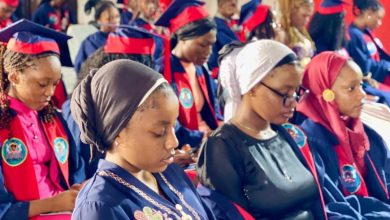FG Rolls Out New Reforms to Strengthen Education System
The Federal Government has unveiled new education reforms to expand access and modernize learning nationwide.
Minister Tunji Alausa said the measures align with President Tinubu’s Renewed Hope Agenda for digital-era education.
The Federal Government has introduced a series of reforms aimed at improving the quality of education, expanding access, and modernizing learning across all levels.

Minister of Education, Dr. Tunji Alausa, said the reforms are part of President Bola Tinubu’s Renewed Hope Agenda, designed to align Nigeria’s education system with global standards and prepare young people for a digital economy.
Alausa highlighted the Nigerian Education Loan Fund (NELFUND) as one of the administration’s most important achievements. The scheme provides interest-free loans to students in public universities, polytechnics, and colleges of education. According to him, this ensures that no qualified student is denied higher education due to lack of funds.
He also announced the reinstatement of History as a compulsory subject in basic schools, explaining that the decision aims to strengthen national identity and civic values.
On infrastructure, Alausa said the Universal Basic Education Commission (UBEC) is upgrading facilities nationwide through its School-Based Management Committee Improvement Program. The initiative covers the construction of classrooms, provision of water and toilets, desks, and perimeter fencing, especially in rural schools.
The minister revealed that the government has increased yearly admission capacity in tertiary institutions from 750,000 to one million students. He added that tuition policies are being harmonized through NELFUND to promote fairness and accessibility.
Alausa described the launch of the Nigeria Education Sector Renewal Initiative (NESRI) Roadmap as a major step in transforming the sector. The six-pillar plan focuses on technical and vocational training, infrastructure, girls’ education, reintegration of out-of-school children, curriculum reform, and digital learning.
He noted that ongoing efforts include nationwide teacher training, a review of school curricula to reduce subject overload, and the creation of a digital data system to track schools, teachers, and learners.
The minister further mentioned the expansion of the World Bank-backed Adolescent Girls Initiative for Learning and Empowerment (AGILE) project, which provides cash transfers, improves facilities, and equips girls with digital and life skills to overcome social barriers.
Other plans include introducing a 12-year uninterrupted basic education model, phasing out the Junior WAEC examination to reduce dropouts, and upgrading technical colleges nationwide.
Alausa added that the government has also launched the National Education Data System, revised the basic education curriculum, enhanced teacher training, and expanded the national school feeding program.



